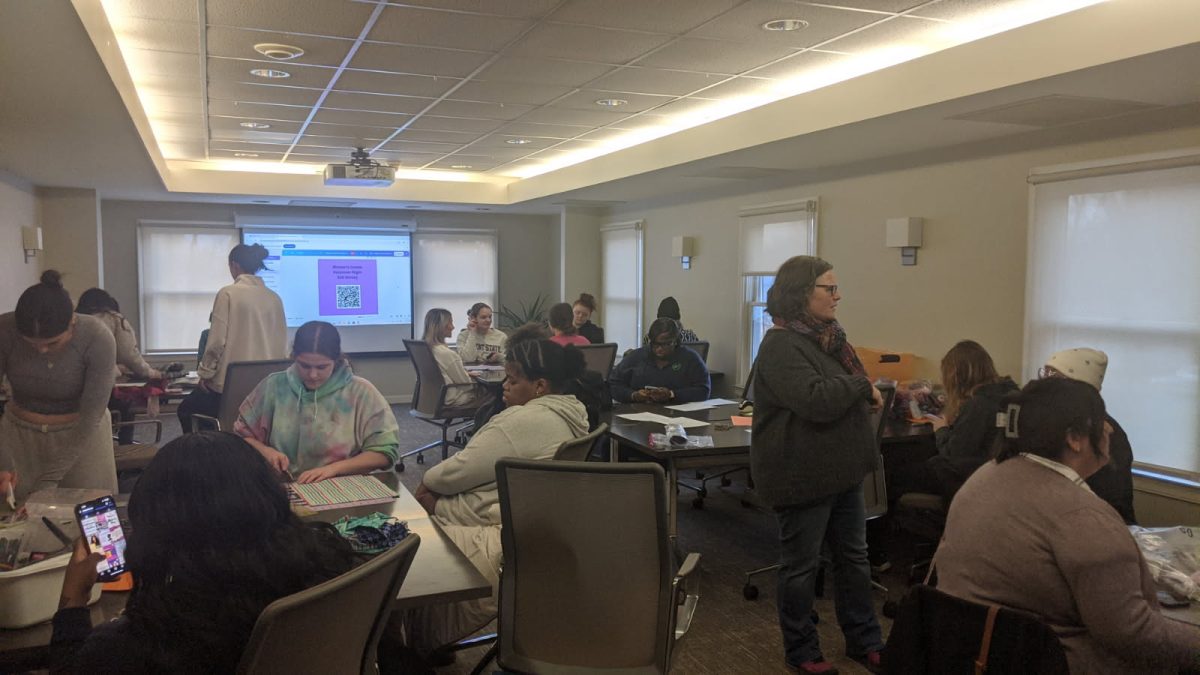One student sliced through fabric with a X-Acto knife, while another across the table folded clothing items.
Senior biology major Ella Walden is among a group of over 20 student volunteers gathered at the Williamson House Feb. 5. Side by side, they worked together to create material for reusable menstrual kits for the organization Days for Girls.
“It’s something that needs done, and it’s a really effective solution,” Walden said. “The organization the Women’s Center is working with has been doing this for years, and it’s helped a lot of people.”
Students were split off into five different working stations. Several tables worked on cutting the patterns for reusable pads, while the others worked on folding underwear.
Since the students are not sewers, the Days for Girls team will sew the pads together, said Sarah Robinson, the graduate assistant for the Women’s Center.
“Usually there’s more material that’s up here, but most of the pool is the waterproof liners to make sure everything is washable,” Robinson said.
Days for Girls also collects extra material to put into the bags. Liners, wash cloths and bars of soap are put into fashionable, wearable bags. The bags are then sent all over the world to help people in need.
“I heard from the coordinator of the event that specifically it’s going to a lot of African countries, where teenage girls or young girls aren’t able to continue to go to school while on their period,” Walden said.
Currently, the Women’s Center is partnered with distributors in Solon and Rwanda. However, they could also go to people in crisis in the states, said Cassandra Pegg-Kirby, director of the Women’s Center.
Along with the event, Days for Girls does presentations to educate people on their reproductive health and de-stigmatize menstruation. They aim to help empower young people to know it’s a natural bodily process.
“Oftentimes, people don’t consider menstruation products. In particular, it keeps young women from education, so if you’re missing five days a month, it’s hard to catch that up and be successful in the classroom,” Pegg-Kirby said.
It is also important that the material used for the pads remains washable and reusable, because many parts of the world do not have access to clean water, Pegg-Kirby said.
“Some people may not have the money to afford a child, so they should be informed of their reproductive rights,” freshman public health major Sophia Lallo said, who worked in the fabric cutting station.
The event allowed for a space to make friends, while doing something helpful for the community, Lallo said.
“I think the importance of these opportunities is gathering together in community as you are,” Pegg-Kirby said. “I think people are missing that and get lost in that. You’re busy with your classes, and there’s so many changes happening in the world right now, but to come in and catch your breath is what these opportunities provide as well.”
Sascha Aleksich is reporter. Contact her at [email protected].


